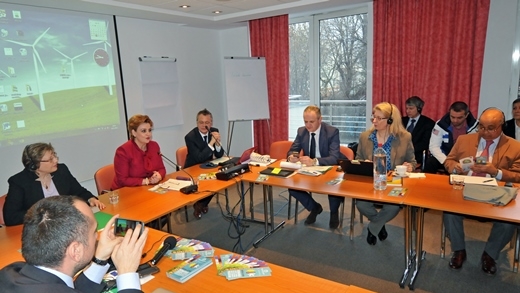Low carbon can lead to better public health, new jobs, and to an economic growth impetus
Professor Anil Markandya, one of the winners of the 2007 Nobel Peace Prize for his contributions to the climate change agenda, visited Bucharest to participate in the Opera-Clima Climate Change Conference, organized by the Government of Romania and the World Bank on January 28, 2015. Professor Markandya received the Nobel Peace Prize in 2007 as part of the team that drafted the Fourth Assessment of the Intergovernmental Panel on Climate Change (IPCC), which made the warming of the global climate system unequivocal and warned that a delay in reducing greenhouse gas (GHG) emissions would likely increase the risk of more severe climate change impacts. An economist by training, he has worked in the field of climate change for over thirty years, publishing some of the earliest research on green growth and sustainability. Daniel Kozak, our External Affairs Officer in Bucharest, met with this leading authority on climate change for an interview about Romania’s climate change and green growth strategy.
Q: Professor Markandya, first of all, welcome to Romania. Please tell us why are you here?
A: I have come to participate in a meeting that will discuss Romania’s climate change and green growth strategy. The meeting is organized by the Ministry of Environment, Water and Forests in collaboration with the World Bank.
Q: You are an economist by trade. When and how have you become interested in the environment and climate change?
A: I guess I am one of the grandfathers of the subject that is now called environmental and resource economics. I wrote my doctoral thesis on this in 1974. When we started out there were very few environmental economists. You could get the whole community is a small meeting room. This year I am president of the European Association of Environmental and Resource Economists and we have an annual meeting with more than 1,000 researchers from all over Europe, and even some from the USA. They are young and intelligent and working to find new solutions to the problems of sustainable development and green growth.
The idea is that the environment provides us with services of great value. For a long time we have ignored these values in our economic structures; that is to say in the way in which we organize our systems of production and consumption. This has had some negative consequences for our wellbeing. We can correct that if we take account of these environmental values and make sure they are reflected in the signals that producers and consumers receive when making their production and consumption decisions.

